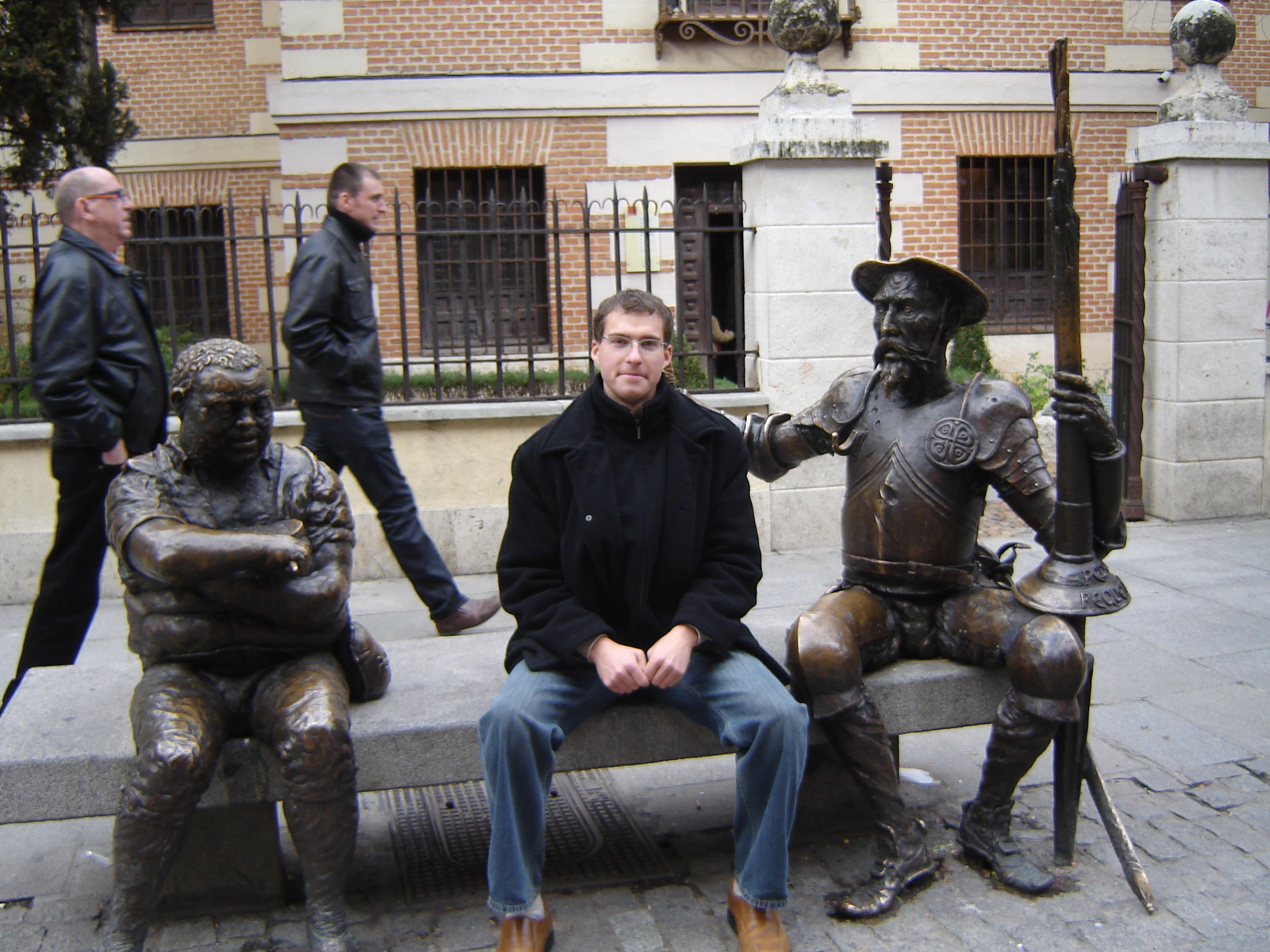If you are one of the many students still weighing graduate school or higher education options, you aren’t alone. Hispanic Studies graduate student Jeffrey Zamostny chose to complete a Graduate Certificate in Social Theory at UK because Social Theory encompasses more than one academic field and offers a broad spectrum of studies that he could tailor with a specialized dissertation.
“I was drawn to Social Theory because when you are in a Ph.D. program at UK, you are often with the same people, since you’re in a rather narrow field. Social Theory gives you the opportunity to meet many people in a wide range of departments. They approach the same topics, but from a variety of perspectives,” said Zamostny.
Zamostny discovered the Committee on Social Theory after taking a course in Gender and Women’s Studies. He liked many aspects of the class, but he wanted to combine research on gender and sexuality with issues of socioeconomic class, economics, and modernity more central to Social Theory. The Social Theory certificate allows you to broaden your understanding of themes pertinent to your research that, while specialized, are also important to other work being done across the humanities and social sciences. For Zamostny, being under the interdisciplinary umbrella furnished by Social Theory will make his work on a particular aspect of Spanish literature and culture accessible and relevant to many other fields of research.
For his dissertation, Zamostny delved into commercial Spanish literature of the 1920s and 30s to understand how male homosexuality was portrayed at that time in literary and social debates surrounding modernization in Madrid and Barcelona. His experience in Social Theory has helped him reflect on broad questions concerning his topic. For instance, what does it mean to say that something is modern? How is sexuality organized by societies undergoing intense historical changes such as industrialization and urbanization? What are the social norms that shape how we can act sexually? After exploring answers to such sweeping questions, he was then able to delve into the specifics of his primary texts and steer his research accordingly.
 Zamostny’s project dovetails nicely with the latest edition of disClosure, a graduate student-managed journal in Social Theory that is based on the team-taught seminar ST 610 offered at UK every spring. Last year, the 20th anniversary topic was “Family, Sex, Law,” the title of a course taught jointly by faculty in Law, English, Geography, and Gender and Women’s Studies. The journal requests submission of research on the yearly topic from scholars across the United States. As a co-editor, Zamostny and his colleagues chose which submissions to include in order to generate a compelling, interdisciplinary issue on the regulation of sexuality and the family via the law. They received contributions from scholars at the University of Kentucky, and other universities in the U.S. and Europe. Their issue also includes interviews from two of the four invited speakers from the Committee on Social Theory’s 2010 Spring Lecture Series.
Zamostny’s project dovetails nicely with the latest edition of disClosure, a graduate student-managed journal in Social Theory that is based on the team-taught seminar ST 610 offered at UK every spring. Last year, the 20th anniversary topic was “Family, Sex, Law,” the title of a course taught jointly by faculty in Law, English, Geography, and Gender and Women’s Studies. The journal requests submission of research on the yearly topic from scholars across the United States. As a co-editor, Zamostny and his colleagues chose which submissions to include in order to generate a compelling, interdisciplinary issue on the regulation of sexuality and the family via the law. They received contributions from scholars at the University of Kentucky, and other universities in the U.S. and Europe. Their issue also includes interviews from two of the four invited speakers from the Committee on Social Theory’s 2010 Spring Lecture Series.
“I would recommend that all graduate students look into Social Theory because it is firmly committed to building bridges between the disciplines. People coming into the program with very different interests are going to get something out of it,” Zamostny said.
Jeff Zamostny with Don Quixote and Sancho Panza at the birthplace of Miguel de Cervantes - Alcalá de Henares, Spain.
